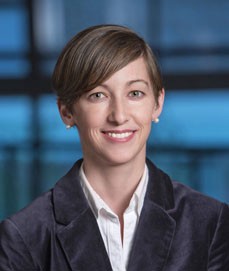
Danielle Bassett, J. Peter Skirkanich Professor of Bioengineering and Electrical and Systems Engineering, is a curious scientist.
Featured on a recent episode of “Choosing to be Curious” on WERA 96.7 Radio Arlington, Bassett discussed her work in studying curiosity and the potential neural mechanisms behind it. In her work, Bassett strives to re-conceptualize curiosity itself, defining it as not just seeking new bits information, but striving to understand the path through which those bits are connected.
Bassett is a pioneering researcher in the field of network science and how its tools can be applied to understand the brain. Now, Bassett and her research team are using the tools of network science and complex systems theory to uncover what common styles of curiosity people share and how individual styles differ. In addition, the team is exploring if there are canonical types of curiosity among humans or if each person’s curiosity architecture is unique.
This isn’t the first time Bassett has combined the tools of disparate fields to pursue her research. For as long as she can remember, Bassett has been insatiably curious and, while she was homeschooled as a child, she often wandered from one subject to the next and let her own interest guide her path. For Bassett, studying curiosity with the tools of physical, biology, and engineering is a natural step in her research journey.
In her interview with host Lynn Borton, Bassett says:
“What took me to curiosity is the observation that there’s a problem in defining the ways in which we search for knowledge. And that perhaps the understanding of curiosity could be benefitted by a scientific and mathematical approach. And that maybe the tools and conceptions that we have in mathematics and physics and other areas of science are useful for understanding curiosity. Which most people would consider to be more in the world of the humanities than the sciences….“Part of what I’m hoping to do is to illustrate that there are connections between disciplines that seem completely separate. Sometimes some of the best ideas in science are inspired not by a scientific result but by something else.”
To hear more about Bassett’s research on curiosity, listen to the full episode of Choosing to Be Curious.
